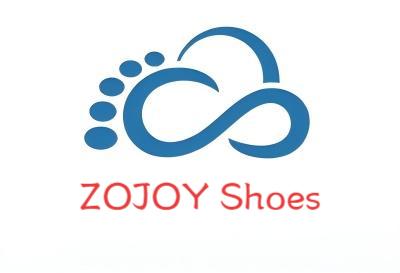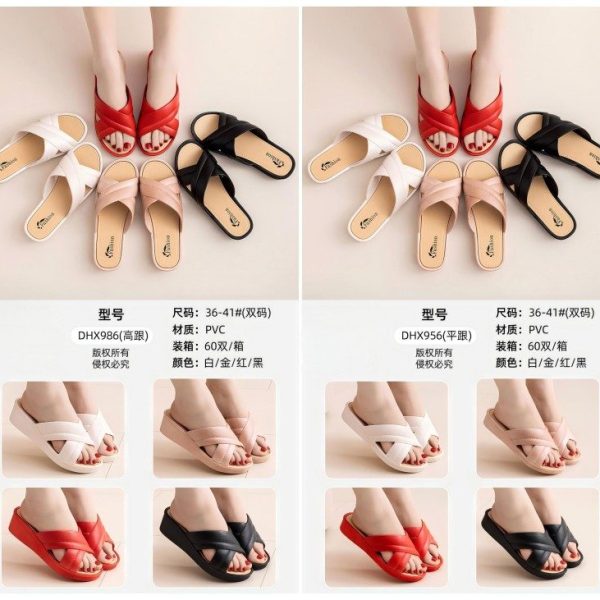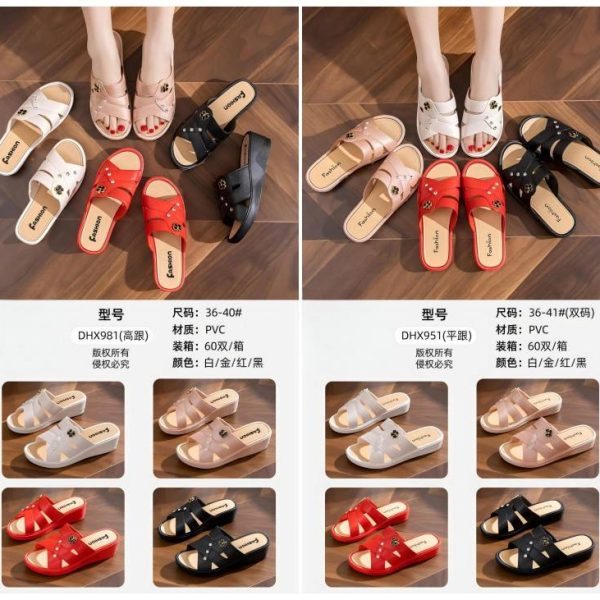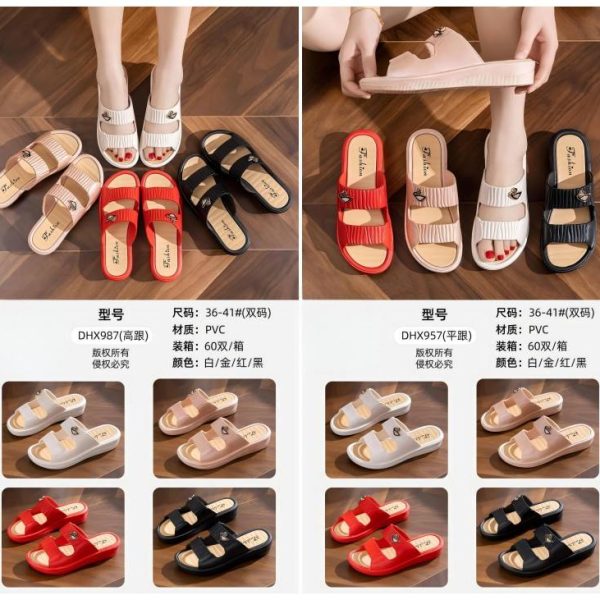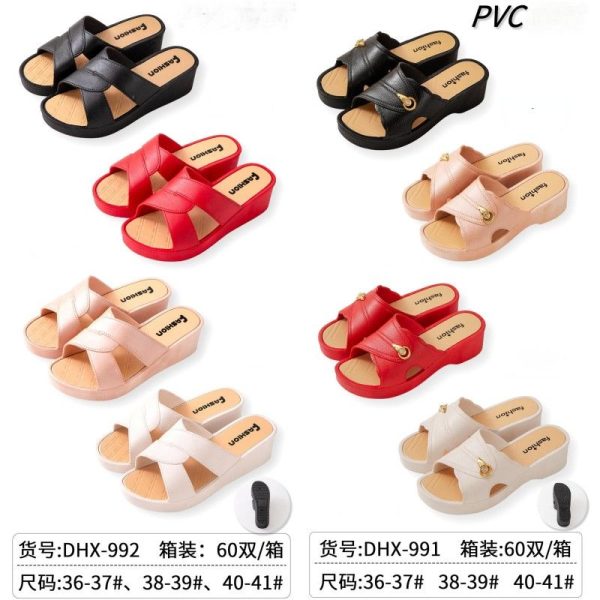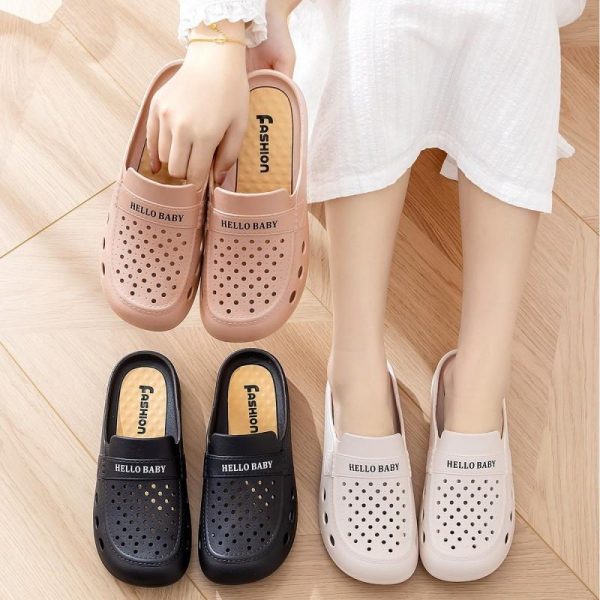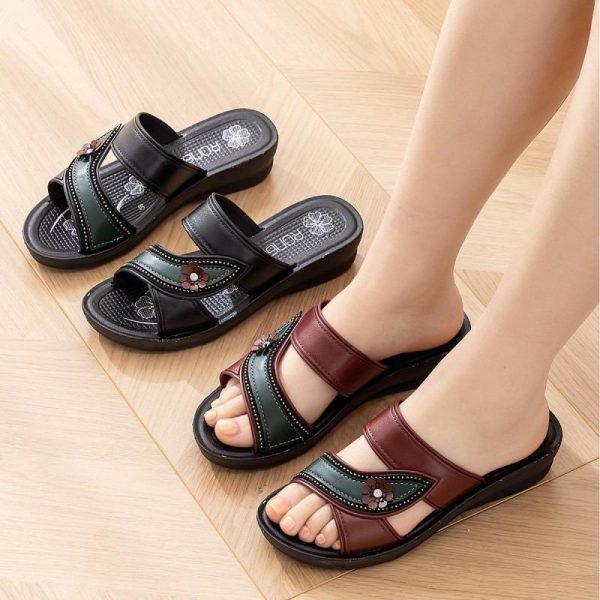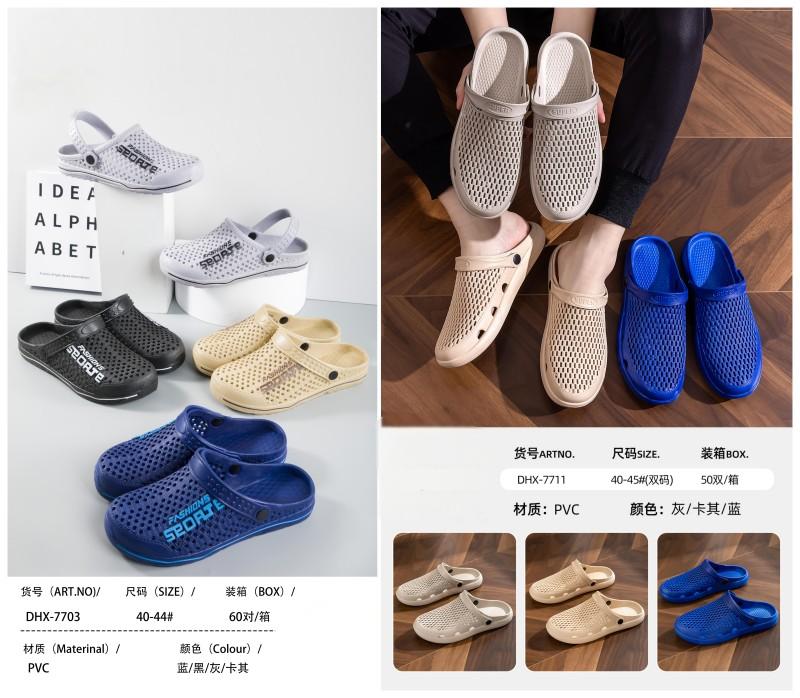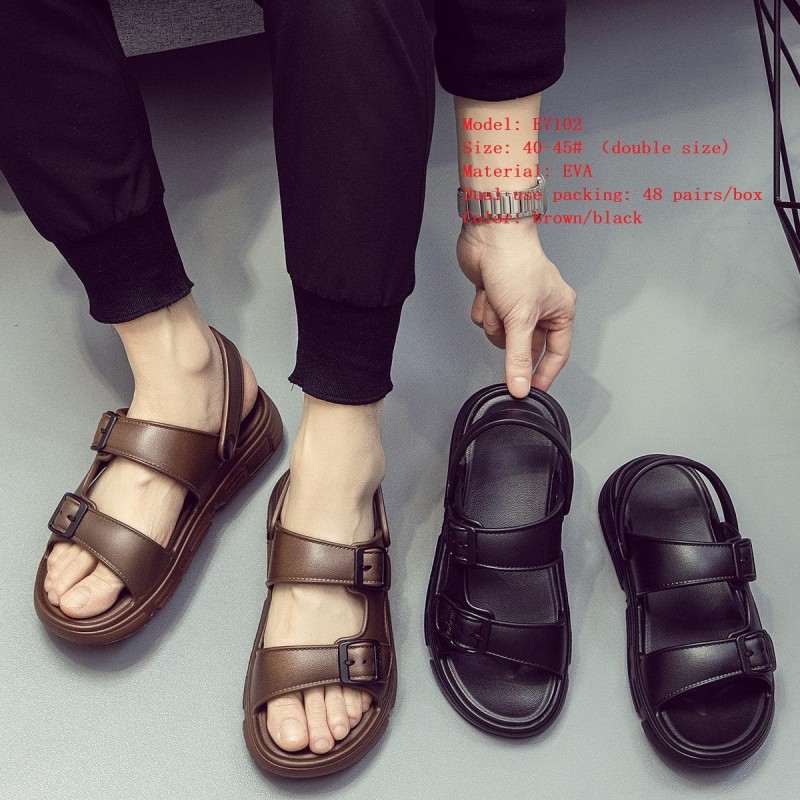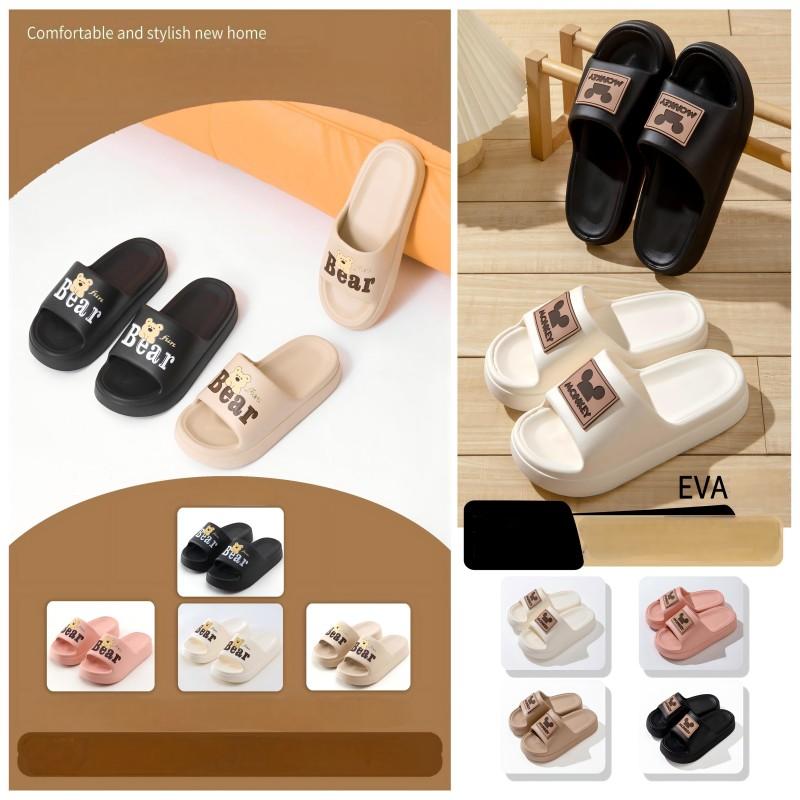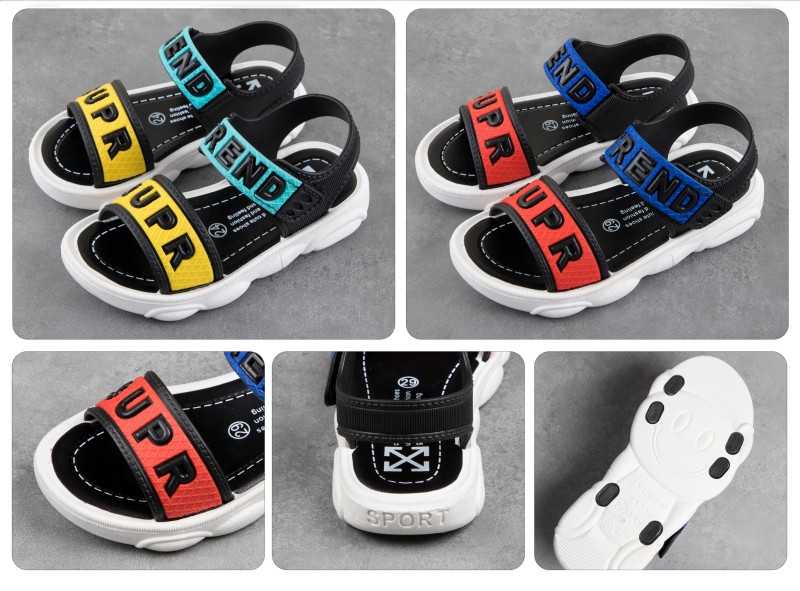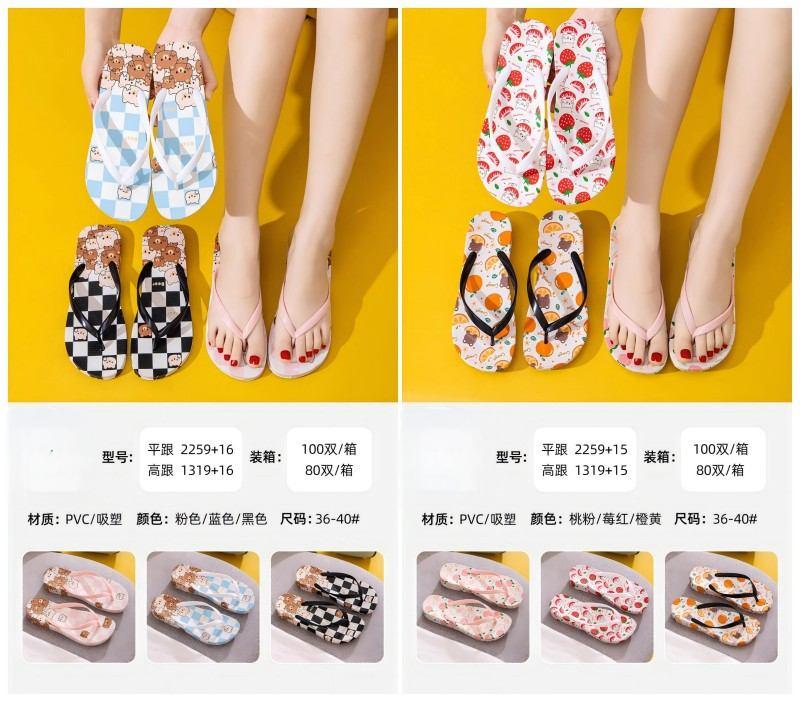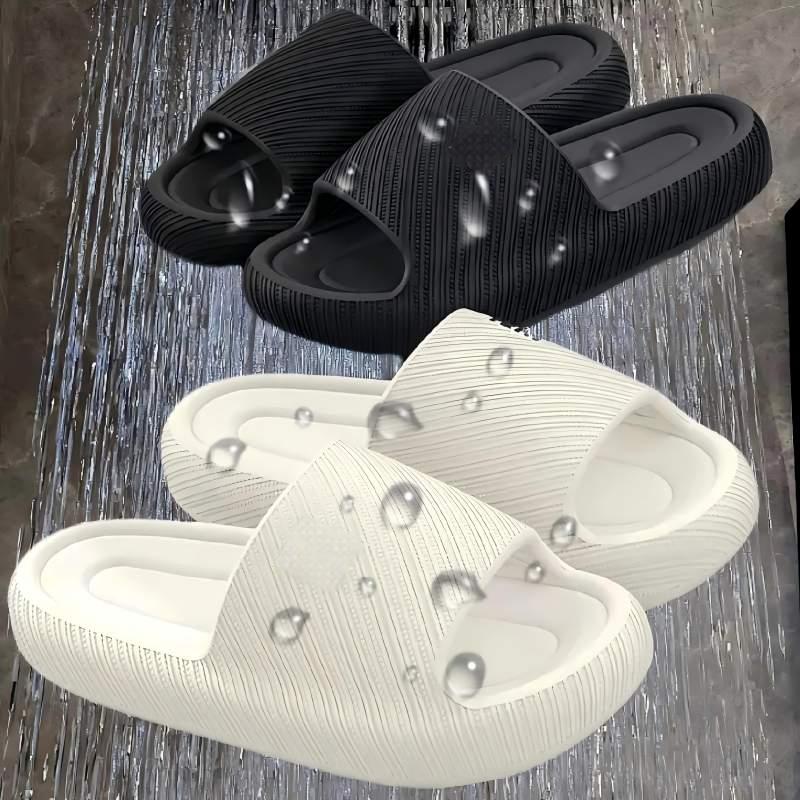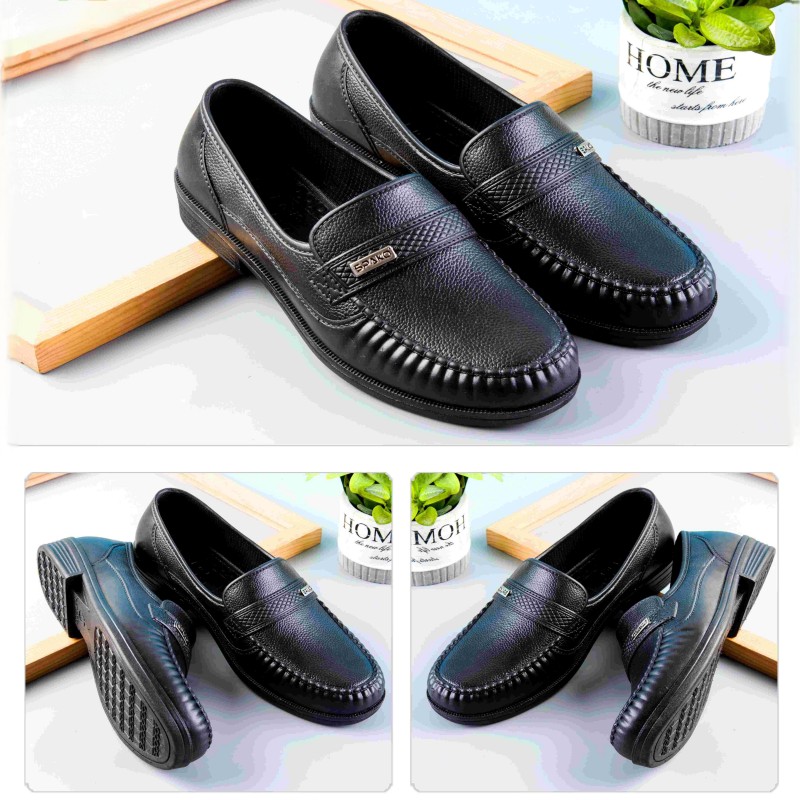-
No. 34 Xiayaopo, Bopu, Wuchuan City
Cozy Mom Slippers – Soft, Comfortable & Non-Slip House Shoes
Wrap your feet in warm hugs every day!
🌟 Why Moms Love These Slippers
“Slip into cloud-soft comfort that keeps you safe on slippery floors. Perfect for busy moms!”
| Feature | Benefit |
|---|---|
| Plush Faux Fur | Ultra-soft lining for sensitive skin |
| Non-Slip Soles | Rubber grips stop falls on tile, wood, or stairs |
| Memory Foam | Cushions tired feet and sore heels |
| Easy to Wash | Throw in the machine – stays fluffy after 50+ washes |
| Wide Sizes | Fits swollen feet (postpartum or arthritis-friendly) |
🛡️ Super Safe & Strong
- Hospital-grade grip for elderly moms
- Silent steps for midnight baby checks
- Hardwood floor tested – no slips!
- Supports arches to ease foot pain
❤️ Perfect For:
- New moms – Comfort during recovery
- Grandmas – Safe steps on stairs
- Cold mornings – Warmth without bulk
- Gift-giving – Wrap for Mother’s Day!
📏 Sizing & Care
| Spec | Details |
|---|---|
| Sizes | US Women’s 5-12 (wide width too!) |
| Weight | Light as a feather (250g/pair) |
| Materials | Bamboo fleece + rubber sole |
| Cleaning | Machine wash cold → air dry |
🎁 Gift-Ready Happiness
“Rated 4.8/5 stars by 12,000+ moms! Give her the present she’ll wear daily.”
🔗 More Cozy Footwear:
- Family matching: Unisex House Slippers for everyone
- Kids’ comfort: Lightweight Slippers for little feet
- Summer ready: Mom Sandals for outdoor errands
Treat her feet today – because moms deserve clouds!
10 things to note when purchasing products from China
Help Center
Have a query? Please check this question and answers
Composition difference:
- PVC (polyvinyl chloride) is polymerized from vinyl chloride monomers, and plasticizers (such as phthalates) and foaming agents are required to improve softness.
- EVA (ethylene-vinyl acetate copolymer) is copolymerized from ethylene and vinyl acetate, and has high elasticity without the need for additional plasticizers.
Characteristic comparison:
- PVC is relatively hard and relies on plasticizers to adjust its softness;
- EVA naturally has rubber-like elasticity, remains flexible at low temperatures (can withstand -76°C), and is anti-aging and non-toxic.
Advantages of EVA:
- Lightweight (density about 0.945 g/cm³), excellent shock absorption, suitable for long-term wear;
- Closed-cell structure is waterproof and moisture-proof, and resistant to chemical corrosion.
PVC limitations:
- Poor air permeability, easy to breed bacteria due to sweat;
- Easy to deform at high temperature, easy to crack at low temperature.
- PVC process is complex: It needs to go through multiple processes such as kneading, plasticizing, pulling, punching, molding and foaming, and strict temperature control is required (such as injection temperature 140–175℃).
- EVA is more efficient: The mainstream process is one-time molding (granulation → mold → foaming), which reduces waste and has a short cycle. For example, the one-time injection process is suitable for mass production and has lower costs.
- In order to reduce costs, some manufacturers use phthalate plasticizers, which are easy to migrate to the human body. According to the random inspection in 2025, 50% of PVC children’s sandals exceeded the standard (the highest exceeded the national standard by 509 times), which may interfere with endocrine and cause precocious puberty in children.
- Solution: Choose products that meet the national standard GB 30585-2024 (phthalates <0.1%), or give priority to EVA materials (no plasticizer required).
- EVA: Natural anti-slip performance is good, but anti-slip pattern design is still required when the surface is too smooth.
- PVC: Hard and brittle materials have poor anti-slip performance and need to rely on the sole pattern to improve grip.
- Purchase advice: Avoid styles without anti-slip patterns, especially in bathroom scenes.
- EVA: Biodegradable and low production pollution.
- PVC: Harmful gases such as hydrogen chloride are released during the production process, and it is difficult to degrade after being discarded.
- Trend: The EU and other markets gradually restrict PVC shoe materials, and EVA has become the mainstream environmentally friendly alternative.
Scenarios for choosing PVC:
- Short-term use, low-cost needs (such as disposable slippers in hotels);
Scenarios for choosing EVA:
- Children’s shoes (high safety requirements);
- Sports/outdoor slippers (need shock absorption and weather resistance);
- Environmentally friendly products (degradable needs).
Quality inspection points:
- Look for GB 30585-2024 standard;
- Avoid products with strong odor or too bright colors (may contain excessive heavy metals).
